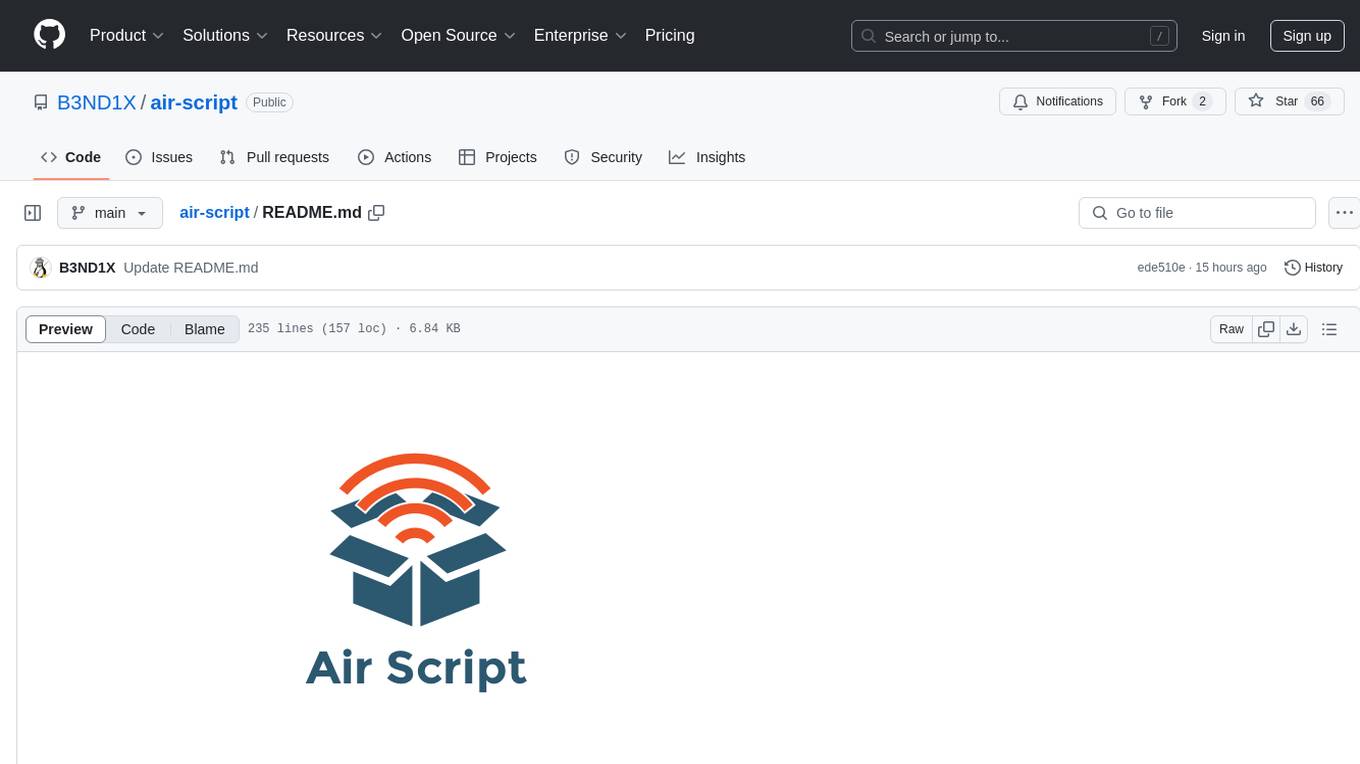Best AI tools for< Bruteforce Passwords >
0 - AI tool Sites
No tools available
1 - Open Source AI Tools

air-script
Air Script is a versatile tool designed for Wi-Fi penetration testing, offering automated and user-friendly features to streamline the hacking process. It allows users to easily capture handshakes from nearby networks, automate attacks, and even send email notifications upon completion. The tool is ideal for individuals looking to efficiently pwn Wi-Fi networks without extensive manual input. With additional tools and options available, Air Script caters to a wide range of users, including script kiddies, hackers, pentesters, and security researchers. Whether on the go or using a Raspberry Pi, Air Script provides a convenient solution for network penetration testing and password cracking.
github
: 113
0 - OpenAI Gpts
No tools available